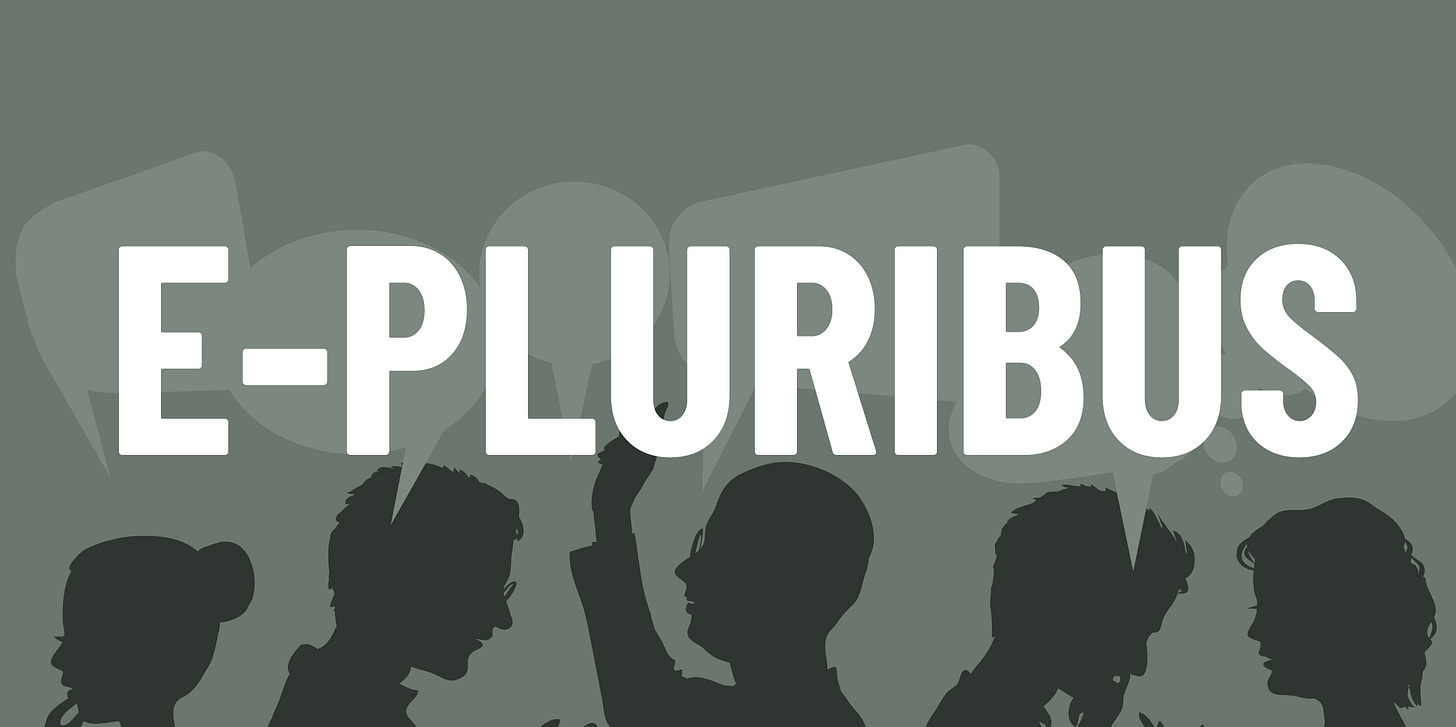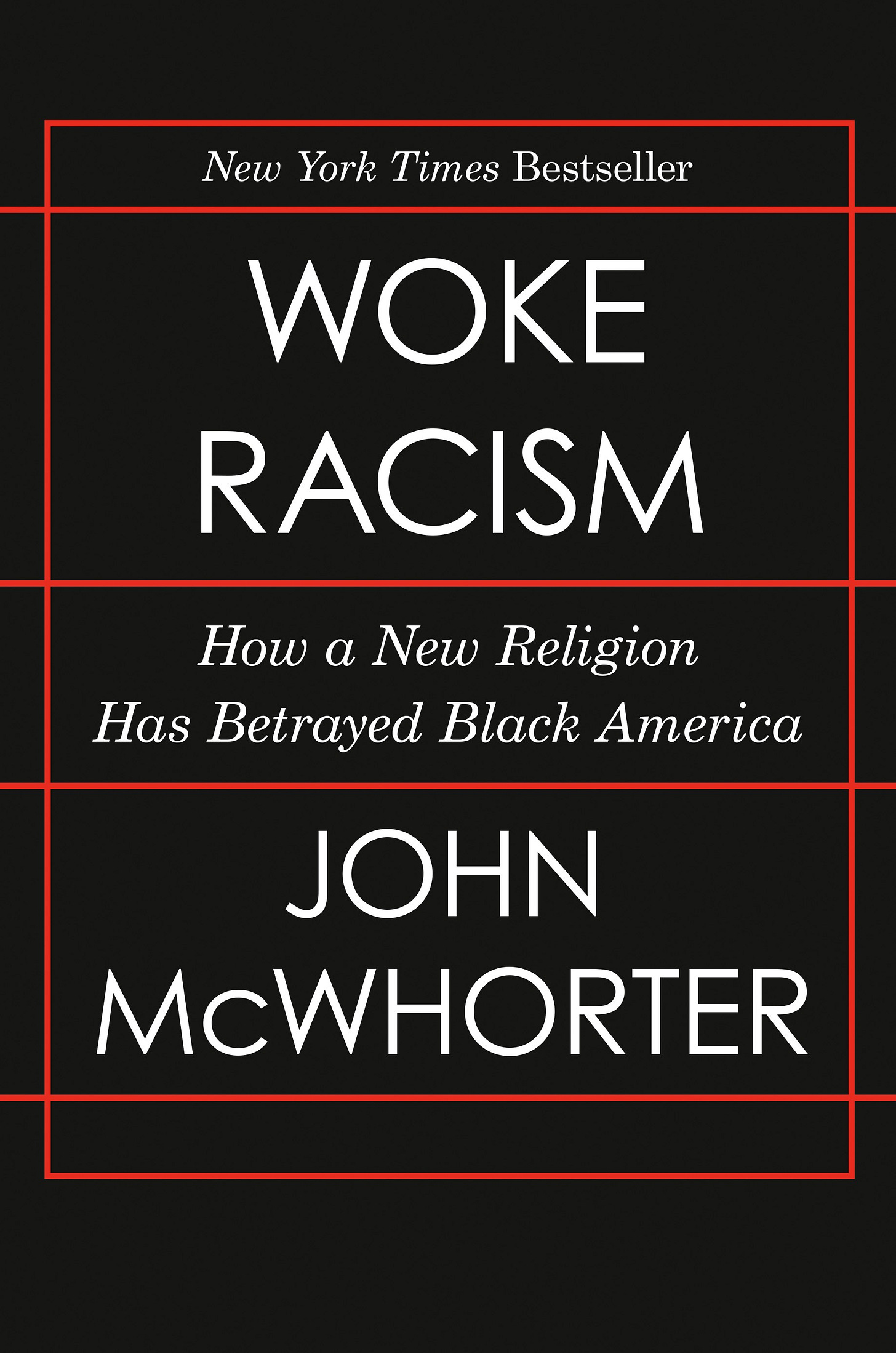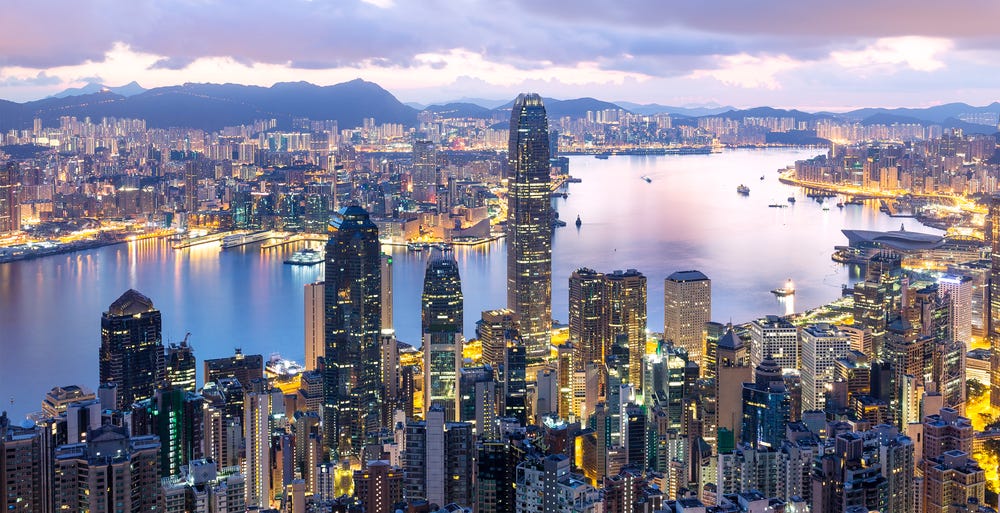E-Pluribus | December 6, 2021
An interview with John McWhorter, how do we counter incivility, and Hong Kong threatens the Wall Street Journal.
A round up of the latest and best writing and musings on the rise of illiberalism in the public discourse:
Yascha Mounk: John McWhorter on Why Woke Ideas Harm Minority Communities
John McWhorter’s new book, Woke Racism: How a New Religion Has Betrayed Black America, has been getting a fair amount of attention, even scoring him an appearance on The View as we pointed out Friday. Yascha Mounk of Persuasion also recently interviewed McWhorter (audio and transcript at link) and at considerably greater length than The View on the harm that McWhorter argues the anti-racism movement is causing.
McWhorter: A quick example is what anti-racism means in education, where the idea is that school boards and teachers propose that to be anti-racist, you can’t submit black people to real challenges, because the sorts of things that involve real challenges are white things such as precision, punctuality and having to raise your hand; that those are wrong, that you need to turn your whole field upside down in order to adjust to the presence of people of color, such that, for example, a classics department makes Latin and Greek optional.
That’s all harmful to black people, because it’s treating black Americans as if they aren’t as bright. In arguing that it’s racist to submit black people to standardized tests because black kids often aren’t as good at them, you’re effectively saying black kids shouldn’t be subjected to a test of abstract cognitive skill. I can imagine Strom Thurmond saying that, and yet we’re not supposed to discuss it. This is doubletalk. Or assuming that if a disproportionate number of black boys are suspended from schools for violence, it must be because of bias. What happens in schools where people take that anti-racist counsel into account is that more black kids, not to mention teachers, get beat up. I consider that to be an unintentionally racist act itself. This isn’t the way social history is supposed to work. This stuff hurts black people.
The unspoken notion is that the most interesting thing about being black is thinking about how white people see us, or don’t, or whether they see us fully. I have to stand athwart this and ask, “How much does it matter?” What you’re telling me is, “This white person doesn’t see me in my full essence the way my black friends do, and therefore that affects my success.” Does it really? Somebody who interviews you might not see you quite fully, but these days, they’re often operating under DEI imperatives, and even if they’re not, how does it affect your success in life? Among human beings, there are going to be some racist biases. Civil rights leaders two generations ago had no idea that we were waiting for white people to be psychologically pristine.
[…]
It is a pretense that things are never getting better. And I don’t think it’s something conscious and practical. People like that have developed a sense of their purpose in life as being this kind of victim. If you took that away from them, they wouldn’t quite know where to stand, because they develop their sense of purpose and security—it’s almost a comfort zone—in being the Cassandra.
That is a kind of person, and that is, frankly, an awful lot of the black punditocracy. They can’t admit progress. Fanatical movements are often like that. There can never be such a thing as progress, or the movement doesn’t have any reason to exist. It has gotten to the point that anti-racism is one of those.
Read it all.
Jennifer Finney Boylan: Rudeness Is On the Rise. You Got a Problem With That?
While harsh rhetoric in politics is hardly new, the spread of social media and the growth of mass communications more generally gives us more opportunities both to be rude and to be on the receiving end as well. Jennifer Boylan at the New York Times muses on rudeness, our responses to it, and what our responses should perhaps be.
So how do we respond to a world under stress, a culture in which the guardrails of so-called civility are gone? The evidence of that stress is everywhere. In airports, and then in the skies, you can find airline passengers angry about wearing masks, angry about inspection of firearms in their carry-ons, seemingly angry about, well, everything. Close to home, things aren’t much better, and it comes from both sides of our ideologically divided society. Take the growing online culture of heckling the vaccine skeptics who have died from Covid, and their families. As Dan Levin asked in his New York Times article last weekend about the phenomenon, is that schadenfreude or a public service?
Nationwide, incivility and rudeness have been on the rise in all aspects of life — except at work — for the last several years. Even in 2019, 93 percent of people polled across the country reported that uncivil behavior was increasing; 68 percent called this a major problem. And that was before the pandemic and the Jan. 6 insurrection. Since then, things have clearly gotten worse.
[…]
It’s one reason I admit I find videos of mask-refusing passengers being taken off planes in handcuffs quite satisfying. Here, just once, we can see the consequences of incivility. I have a similar sense of satisfaction when I see footage of the Jan. 6 insurrectionists being given prison sentences. I can’t turn away when the insolent are reduced to tears. I’m sorry you’re unhappy, I want to say, in the same tone of voice I once used with my preschool-aged children. But maybe you should have thought about the consequences before you tried to violently overthrow the government of the United States while wearing a Viking hat.
And yet I worry: By indulging in the pleasure of someone else’s tears, am I the one showing incivility? I mean the dark kind described by Flannery O’Connor’s character the Misfit in her story “A Good Man Is Hard to Find,” a person who says he finds “no pleasure but meanness.”
Such dips and dives into meanness make me think of my mother (who would have turned 105 over Thanksgiving weekend). It was her opinion that forgiveness not only restored dignity to those who have lost it; it also gave one a certain power over the meanies of the world. She always thought the best of people, whether or not they actually deserved it.
Read the whole thing.
Erick Tsang: Hong Kong Issues a Threat to the WSJ
Last week, the editorial board of the Wall Street Journal warned of China’s latest authoritarian ploy to manipulate elections in Hong Kong and the actions taken against dissidents urging resistance and protest against the Chinese Communist government’s plans. Over the weekend, Erick Tsang, Hong Kong’s Secretary for Constitutional and Mainland Affairs, fired back at the Journal, warning of Hong Kong’s “right to take necessary action” if the Journal and others do not back off.
To suggest that “Hong Kongers risk harsh penalties if they protest in public” is not only incorrect but also scaremongering. Hong Kong’s Basic Law and National Security Law stipulate that rights and freedoms, including freedom of speech, the press, publication, association, assembly and demonstration, shall be protected. But any manipulation to sabotage an election will not be tolerated. It is perfectly in line with international practice for the Hong Kong Special Administrative Region (HKSAR) government to take enforcement action against lawbreakers who attempt to sabotage elections.
[…]
We encourage all eligible voters to take part in the election next month. Surely every government would want its residents to cast valid votes in any election. Therefore, I am shocked by your statement that “boycotts and blank ballots are one of the last ways for Hong Kongers to express their political views.”
Please be advised that inciting another person not to vote, or to cast an invalid vote, by activity in public during an election period is an offense under section 27A of the Elections (Corrupt and Illegal Conduct) Ordinance, irrespective whether the incitement is made in Hong Kong or abroad. We reserve the right to take necessary action.
Read it all here.
Around Twitter
Some reactions to a New York Times guest essay entitled “Is My Little Library Contributing to the Gentrification of My Black Neighborhood?”:
Some electoral advice to Democrats from Wesley Yang:
Finally, “birthing person” in plain English:












